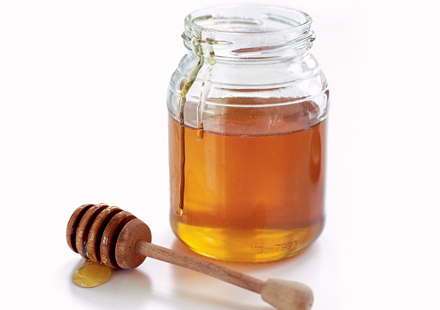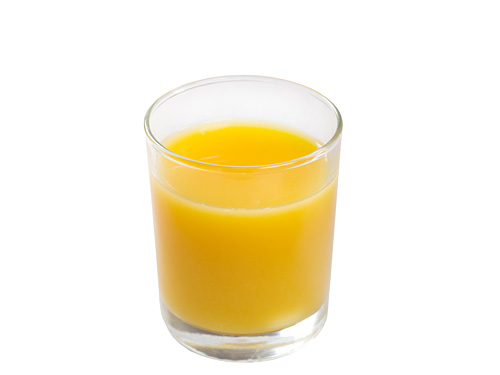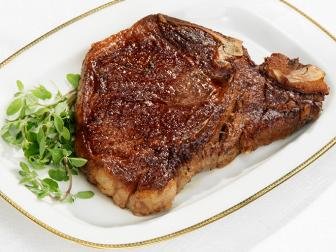Fake food that we eat.
We eat two or three meals everyday as an average consumer but most of us don't really know where does it all come from. The lack of interest in knowing how your food is made leads to an unhealthy lifestyle. There's been a debate on whether using chemicals and food steroids cause any harm to the consumer. But this isn't about how fruits and vegetables are being fertilized, rather about the scam that you're being played. What you're buying off the shelves of your local store that maybe isn't even the product you expect it to be.

Honey is a probiotic, natural product that helps strengthens immune system. Germany is the largest importer of honey, Germans love consuming honey. United States come as second largest importer of honey but however there's a distinctive difference between these two. As per FDA regulations, for honey to be labelled as honey it must contain traces of pollen. 75% of the honey sold in United Stated isn't even honey. Most manufacturers are selling high fructose syrups blended with artificial ingredients labelled as honey, each producer involving different techniques and methods to form their own flavor. The question that comes next is why do they sale fake honey ? the answer is quite simple. Real honey is expensive, bees have to visit 2 million flowers to produce one cup of honey, travelling almost 55,000 miles in the process. Over the lifespan of a single Bee it produces only a half teaspoon of honey.
Compared to that producing high fructose syrups is much cheaper and due to no regulations on percentage content of real honey included in the mixture, there's no barrier for these producers in making fake honey. European regulations state that the honey containing 60% or more content of real honey could be labelled and sold as honey while having no more than 5% sucrose syrup.
Real honey crystallizes over time and it never spoils, while most Europeans are used to this idea most Americans when asked during a study thought of crystallized honey as spoilt.
2.3 billion cups of coffee are drank everyday, if you are one of the daily consumers you'd be surprised to know that ground coffee contains fillers which are usually wheat, soybeans, seeds, corn, twigs and even dirt.
Coffee beans are only produced in humid mountainous areas, according to recent studies it is expected that by 2050 half of the regions where coffee is grown will not be able to produce coffee beans anymore, and by 2080 it could go extinct.
A bunch of coffee producers include fillers in their final product purposefully which include byproducts that should actually have been removed. However if you prefer to buy whole beans yourself then you're better off because there's no fillers in them.
It has all come to be known due to the developments of Brazilian scientists who found a technique of liquid chromatography and statistical analysis to detect what percentage is actual coffee in ground coffee products. The procedure is 95% correct, some brands of ground coffee had such a high percentage of fillers that the scientists concluded they must have been purposefully added to the product by manufacturer.

The orange juice that you and your family enjoy every morning might be artificial if you're not extracting them yourself. Orange juice that comes in containers starts off as orange juice but the treatment it gets along the way doesn't leave it in its natural form. Oranges are squeezed and the oxygen is removed from the juice, then it is kept in large containers for almost over a year to remove all the natural flavor and then branded orange flavor is added later. Manufacturers do this to brand their flavor and keep it consistent between all final products, if consumers tasted various flavors in same product they won't like it or develop loyalty to one product. Natural orange juice flavor varies depending on the time of the year and region where oranges are picked from.
Which is exactly why orange juice producers spent millions to hire flavor and fragrance experts that work for many well reputed perfume companies, to create unique and recognizable orange juice like flavor. These flavorings don't have to be listed on containers as they are supposedly extracted from orange oils themselves, which is why you'll never know the difference between artificial flavored juice and natural juice unless you're a food expert.

Steaks are common offering in almost every restaurant but some local cheap steaks that you're eating could be coming off of tens of different cattles. These are called frankenstein steaks that are formed from array of offcuts of beef, lamb, pork or any meat. When many of the animals are butchered and turned into food products, a lot of waste is created as small chunks of meat. These could either be thrown away, or in case of some companies or butchers glued together using an additive transglutaminase.
This additive fuses meat really well together and it leaves no traces, there is also no legal requirement to list it as an ingredient which means only a food expert could catch such thing. Try to stay away from places offering really cheap steaks, it might payoff in a healthier life.
Kobe beef, that comes from Kobe cows is offered in thousand of restaurants as high priced kobe beef steak and burgers. Kobe cows are bred in Japan only, kobe steaks are famous for its impressive flavor and texture. Kobe beef is incredibly exclusive, it comes from Japan and only 3000 cattles are deemed worth to be used as beef each year. Kobe cows are fed beer and sake and they are massaged daily. In US, it'll cost you approximately $350 on average to eat a real kobe steak as the amount of real kobe beef that gets to US would only feed 77 people. However millions are eating kobe steaks regularly for far less than $350, it is one of the biggest food scams, some farms are even creating fake kobe beef known as faux-be beef. It is sold to thousands of restaurants and consumers are paying over a $100 for each steak.
Only 9 restaurants in US sell real kobe beef, and they need to have a special license to cook and sale kobe beef.
Fake food is a real problem and it has expanded beyond our reach, olive oil that is used for cooking contains peanut oil, soybean and palm oil. Some branded cheese and bread products contain wood pulp. Dried spices and herbs contain garden weed. Tea contains sawdust and sand. Blueberries are often fake as real blueberries are fake and there's an easy workaround to make fake blueberries that look exactly the same but provide no health benefits. Most of the champagne sold in US isn't champagne but it is sparkling wine labelled as champagne. It is considered illegal to sale sparkling wine as champagne it if doesn't originate from the province of champagne in France, every country follows this regulation except United States because of a 100 year old legal loophole. In any other country selling sparkling wine as champagne would cause french lawsuits and the business will be sued but it is a common practice in US.
Every country has its own regulations to monitor and maintain food quality. British charity OXFAM conducted a study comparing food quality in every country of the world.
Netherlands, France, Switzerland, Denmark and Sweden made it to the top when it comes to food quality. USA however was on the other spectrum of the line, Ranking 120 out of 125 in the same league as Saudi Arabia, Jordan and Ethopia.
It is not the fault of American citizens, it is the food companies that have monopolized food industry, taking advantage of every possibility of selling inferior quality food as high end appealing food. Food regulations in US don't make the situation any better as there are simply not enough regulations.
What you can do to improve your health and avoid fake food is to avoid cheap dodgy looking food in general, learn about the sources of food. Buy from supermarkets only the fresh and real high quality food. A reduction in demand of cheap low quality food will result in reduction in its production as well.
Eat healthy to live healthy.
ohh nice sharing ( zabrdast brother :)
true but sometimes heard to keep to it.even knowing of it danger. upvoted.follow back and upvote my post @egbujorvictor.
Thank you for sharing your opinion, Followed back.
Congratulations @bareknowledge! You have completed some achievement on Steemit and have been rewarded with new badge(s) :
Click on any badge to view your own Board of Honor on SteemitBoard.
For more information about SteemitBoard, click here
If you no longer want to receive notifications, reply to this comment with the word
STOPCool article. I heard tha some people who make honey they boil it.
I agree with your post ^^